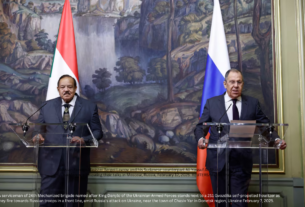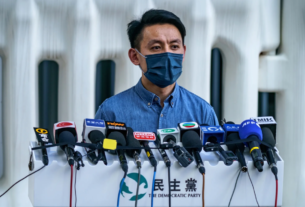Sudan’s foreign ministry, aligned with the army, announces a path to elections despite ongoing civil war. The move raises concerns over feasibility and legitimacy as fighting continues.
“The people of Sudan deserve a democratic transition,” a ministry statement said. Officials claim elections will restore stability and end the political crisis.
The country remains divided between the Sudanese Armed Forces (SAF) and the paramilitary Rapid Support Forces (RSF). Clashes leave thousands dead and millions displaced.
Fighting disrupts essential services, making an election difficult. Large parts of the country remain under RSF control, limiting government reach.
The army-led government insists elections can proceed under military oversight. Critics argue that free and fair voting is impossible under current conditions.
“Elections must include all Sudanese voices,” a civil society leader said. He warns that holding a vote without stability risks further violence.
International groups urge Sudan to prioritize peace talks before elections. The United Nations calls for a ceasefire and humanitarian access.
The war, which began in April 2023, causes widespread destruction. Civilians suffer from food shortages, medical supply disruptions, and ongoing violence.
Millions flee to neighboring countries as fighting escalates. Aid organizations struggle to deliver assistance in conflict zones.
Army leader General Abdel Fattah al-Burhan pushes for elections to legitimize military rule. His rivals accuse him of using the vote to consolidate power.
The RSF, led by General Mohamed Hamdan Dagalo, rejects the proposal. Its forces control parts of Khartoum and other strategic regions.
Peace talks between the two factions repeatedly fail. Both sides refuse to compromise, prolonging the conflict.
Western and regional powers monitor the situation closely. Many warn that rushed elections could worsen instability.
Some Sudanese politicians call for an inclusive transitional government instead of elections. They argue that a political settlement must come before voting.
The African Union and United Nations offer mediation efforts. However, neither side commits to serious negotiations.
Public trust in the political process remains low. Many Sudanese see both the army and RSF as responsible for the ongoing crisis.
Reports indicate rising human rights abuses by both factions. Civilians face violence, forced displacement, and restricted access to resources.
Elections without security and political consensus risk deepening the crisis. Observers warn that a flawed process could trigger more violence.
The situation remains uncertain as both sides continue military operations. Without a peace agreement, Sudan faces further instability and suffering.




